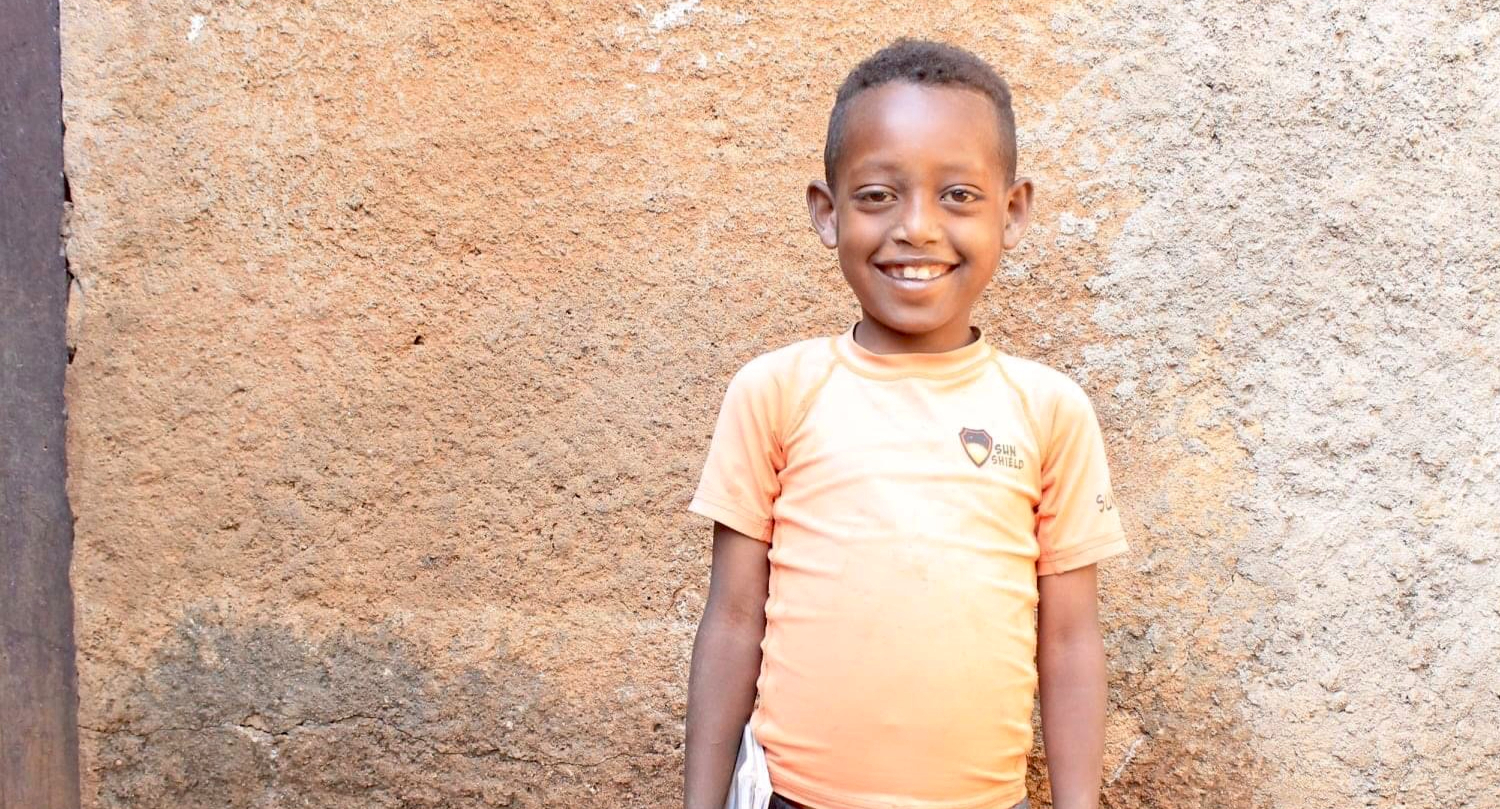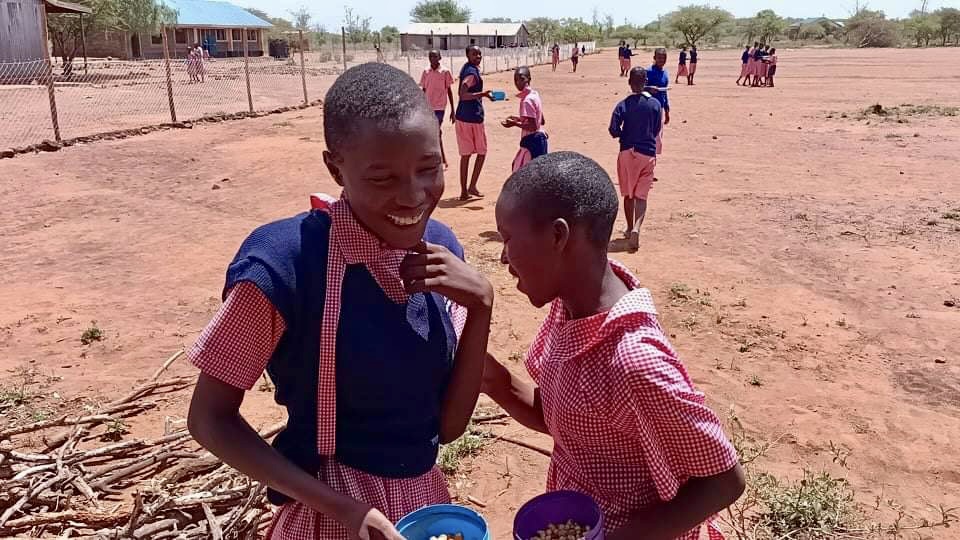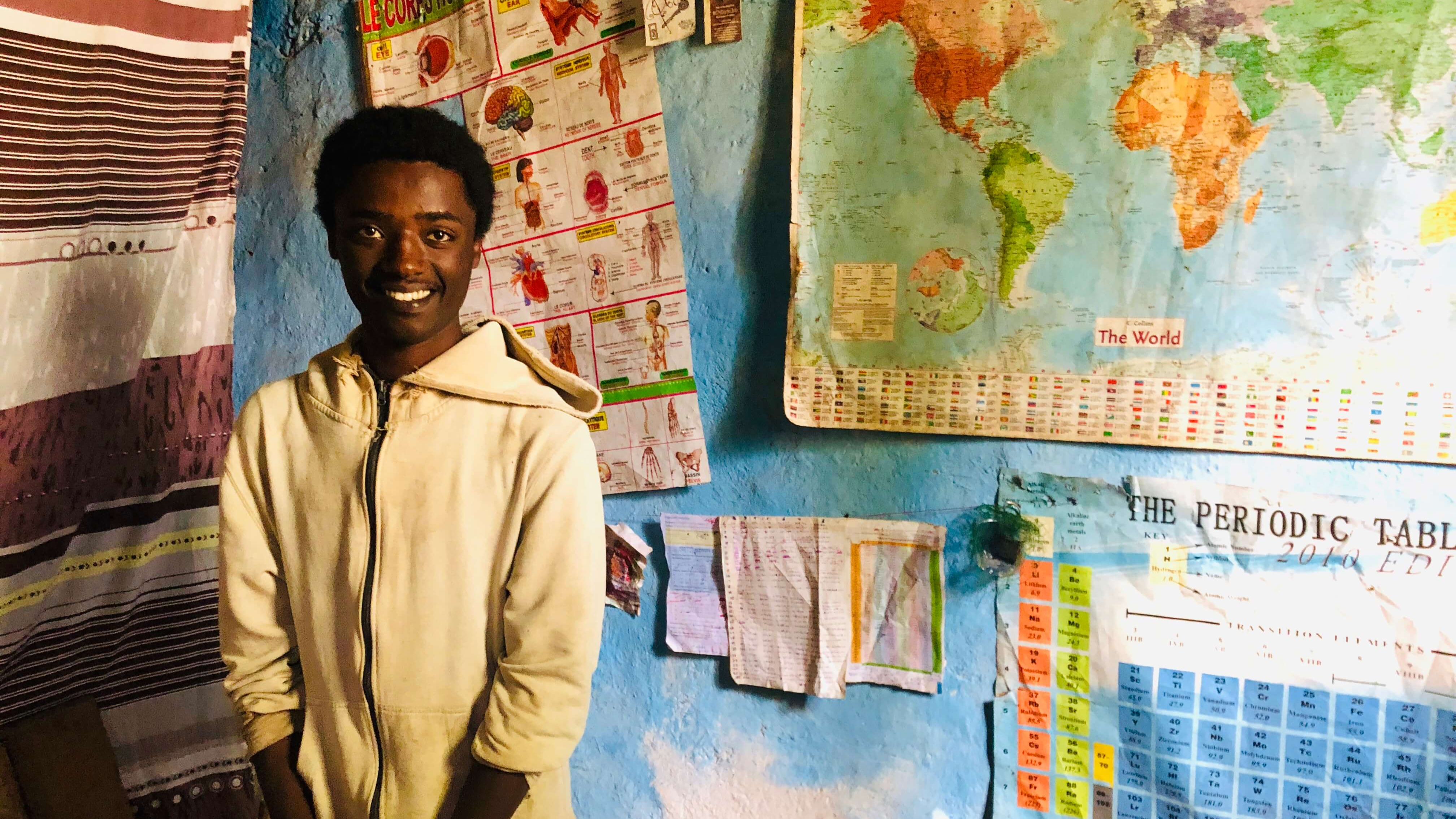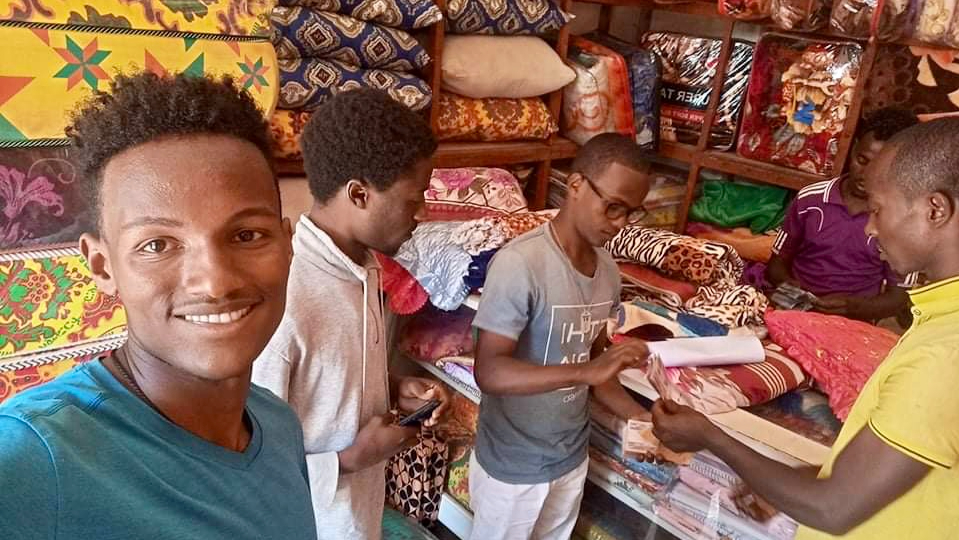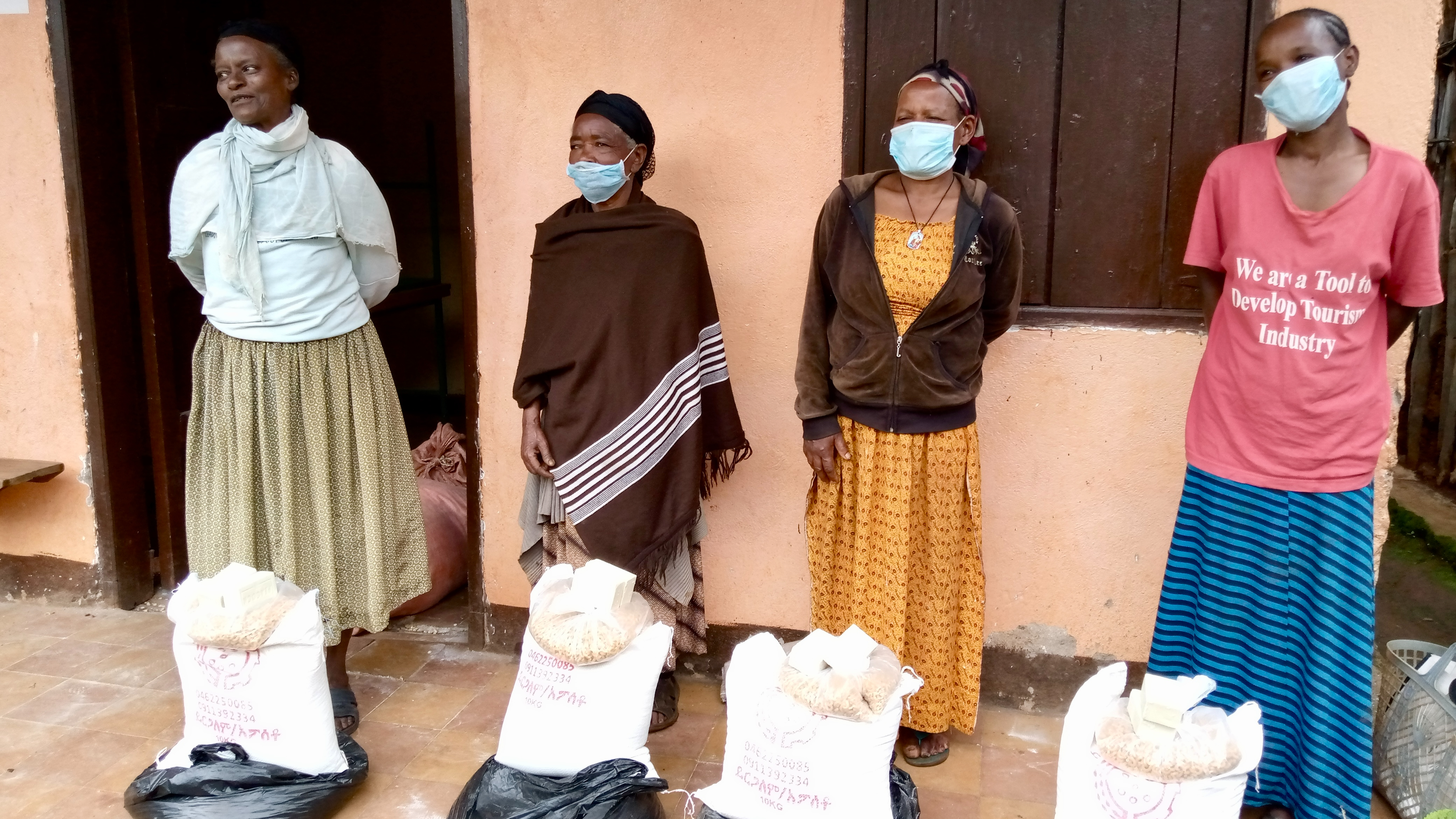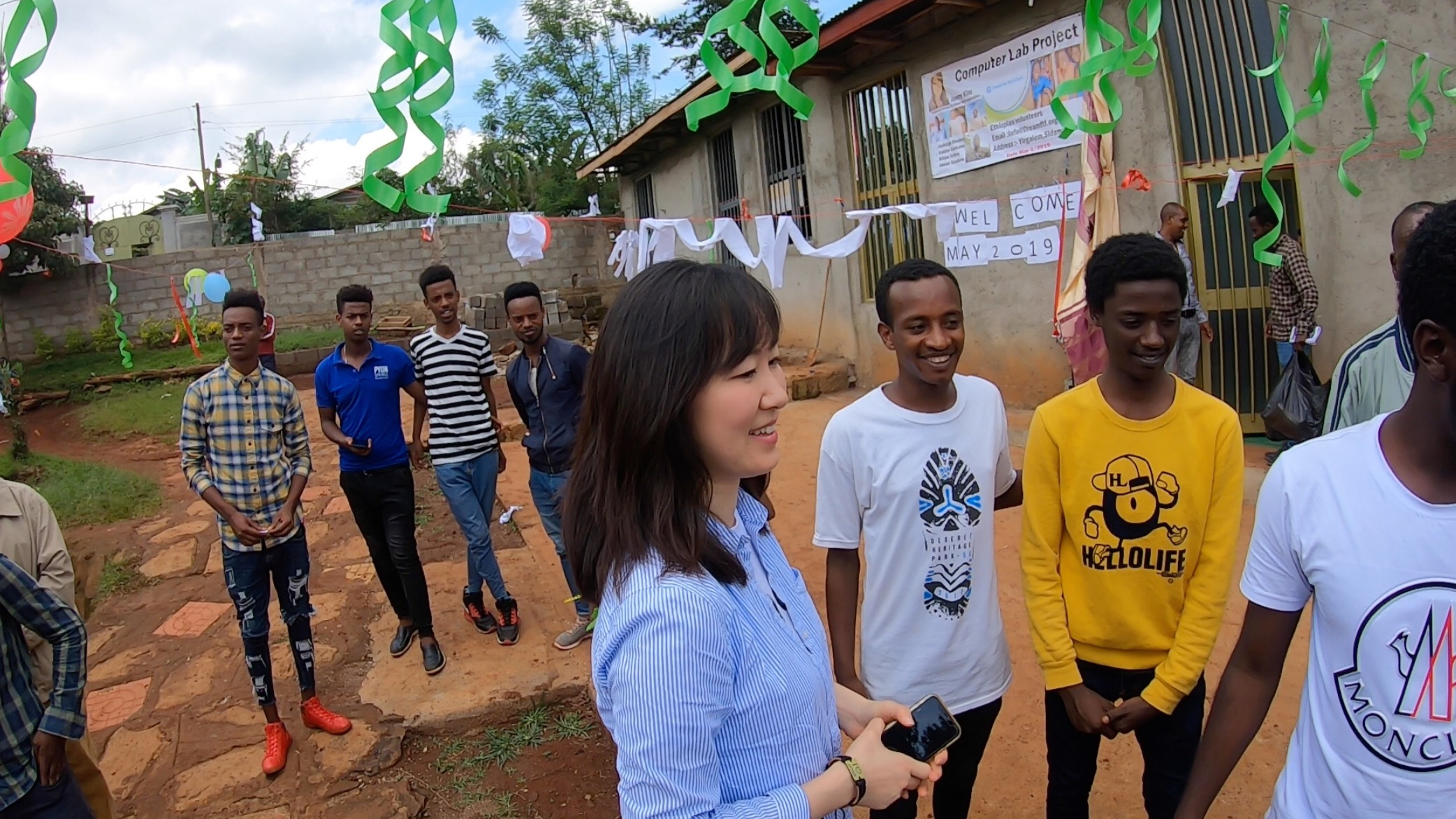
1) Sponsoring a young boy in Ethiopia, what thoughts were going through your head when you decided you were going to visit him there to see his situation for yourself? What does it mean to sponsor someone?
When I took my first trip to Ethiopia in 2018, I had two objectives in mind: First, I hoped to meet the boy and advise him to continue his education and come back to our organization to get support until he could become a self-sustaining adult. Second, I wanted to see the situation these children were living in and understand why this teenage boy dropped out of school to get a job as a construction worker.
In his letter to me, the boy wrote that he wanted to become an engineer. I didn’t want him to give up on his dream just because of his current situation and I told him that he was born into this world for a reason.
Sponsoring a child in Ethiopia has been one of the most rewarding experiences in my life. Many of these children not only live in poverty, they also lack love. It was a life-changing experience for me to build a relationship with a sponsored child and to share my love and encouragement through letters, photos, and personal visits. Most of the children in Africa live with a single mother or are born into a broken family. Knowing that there is someone (a sponsor) on the other side of the world who loves them and cares for them gives hope to these children that will last a lifetime and motivates them to study harder to pursue their dreams.
2) In rural Africa, the volunteers associated with ‘Dream for the Future’ faced the challenge of setting up a computer center for the school children of that area, which was the one amenity that the students showed most interest in. What do you believe interest those students most about having a computer lab, compared to other things? Could it be the freedom of knowledge from beyond?
There is a saying: “Give a man a fish and you feed him for a day; teach a man to fish and you feed him for a lifetime.” We believe in empowering youth throughout Africa by providing them the access to the education, skills, and opportunity needed to become self-sustaining adults.
When we interviewed students in Ethiopia, many of them expressed strong hopes of changing their lives through higher education. However, they faced many challenges because of a lack of educational materials and resources in school—especially in the rural towns where, when compared to students in the city, the educational environment was more challenging and offered fewer resources and teachers.
The high school we visited was the only school in town with a computer lab. Only ten computers were available for the 60-student class. Many of them were either very old or not functioning at all. Students also wanted access to more educational materials such as reference books and other reading materials.
After the interview and our research, we made a proposal to come up with an E-learning lab with the RACHEL server (Digital Library) that provides access to the world’s best educational websites including Wikipedia, Khan Academy, and more.
We established the E-Learning Lab to enhance the teaching and learning of Information and Communication Technology (ICT), STEM education, the Microsoft Office Suite, and Photoshop.
3) What was the one thing about volunteering in this organization that made you feel it was something you liked and really wanted to do? What about the students and their struggles in rural Africa made you feel it was important?
Children are the future and to ensure their future we must invest and give them the opportunities they need and deserve. After visiting rural African schools, interviewing students, hearing their challenges, and observing their environments, I became convinced of the critical need for a quality education.
At-risk children have fewer chances to succeed. They are disconnected from the digital world and from access to a quality education and lose the opportunity to learn and build essential skills. Many of the schools we saw lacked basic educational resources such as books, reference materials, and encyclopedias. Computer learning was almost non-existent. The implementation of an E-learning lab with computers full of digital content is quite a meaningful and innovative technology project that can change the education system in a rural town in Ethiopia.
As the world becomes more technologized, the digital divide between western countries and Africa continues to widen, along with the digital gap between urban and rural communities. I believe Dream for the Future’s mission of providing ICT (Information and Communication Technology) education to improve the quality and accessibility of educational resources is essential for helping young people pursue higher education and fulfill their dreams. Investing in children’s education and access to technology provides a promising future for young people in Africa, helping them to escape extreme poverty, eliminate gender inequality, health and sanitation issues, and economic instability.
4) Did you end up helping the boy you sponsored? What happened with his situation once you went to see him?
I was able to meet the boy I sponsored and visited his home to meet his family. His family included his grandmother, his aunt, and his aunt’s baby son, all living in an iron roofed hut. When I looked around the house, I saw that they did not have any basic needs and I heard that his grandmother was struggling to provide daily meals for the family. The boy told me he felt pressured to support his family and improve their lives and that’s why he had dropped out of school to work in construction. For the same reasons, many of his friends also dropped out of school to work and earn money to help their families.
In conversations with his family and an organization of workers, I learned that one of the challenges in this town, as well as throughout the country of Ethiopia, is that of teen boys leaving school to enter the workforce because of their family situations, peer-pressure, and a loss of interest in study. There is also an absence of role models in rural communities who succeed with education and could inspire other teens to stay in school and study harder to fulfill their dreams.
During my visits with my sponsored child, I persuaded him to continue his education to reach his dream. Thankfully, he accepted my advice and returned to school. He also decided to come back to our organization to get additional support. Last September, he was able to go back to school at a late age, but, unfortunately, seemed to be facing more challenges because he had been out of school for so long. When I heard the news, I provided a gift of a cow to his family to generate income so he could focus on his studies without worrying about supporting his family.
Category

